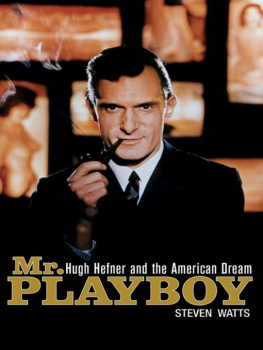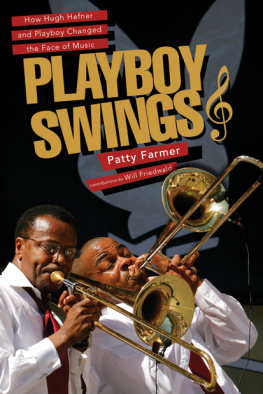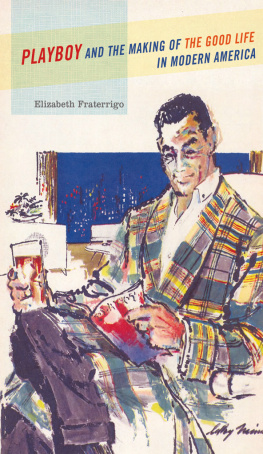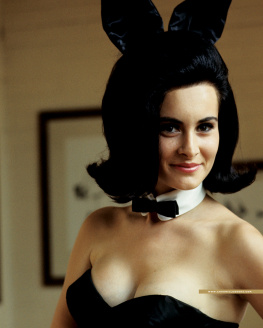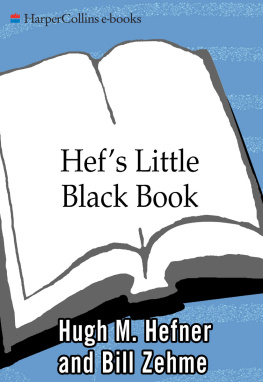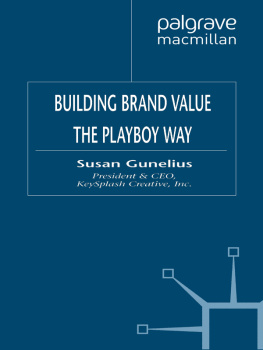Steven Watts - Mr. Playboy: Hugh Hefner and the American Dream
Here you can read online Steven Watts - Mr. Playboy: Hugh Hefner and the American Dream full text of the book (entire story) in english for free. Download pdf and epub, get meaning, cover and reviews about this ebook. year: 2008, publisher: Wiley, genre: Non-fiction / History. Description of the work, (preface) as well as reviews are available. Best literature library LitArk.com created for fans of good reading and offers a wide selection of genres:
Romance novel
Science fiction
Adventure
Detective
Science
History
Home and family
Prose
Art
Politics
Computer
Non-fiction
Religion
Business
Children
Humor
Choose a favorite category and find really read worthwhile books. Enjoy immersion in the world of imagination, feel the emotions of the characters or learn something new for yourself, make an fascinating discovery.
- Book:Mr. Playboy: Hugh Hefner and the American Dream
- Author:
- Publisher:Wiley
- Genre:
- Year:2008
- Rating:3 / 5
- Favourites:Add to favourites
- Your mark:
Mr. Playboy: Hugh Hefner and the American Dream: summary, description and annotation
We offer to read an annotation, description, summary or preface (depends on what the author of the book "Mr. Playboy: Hugh Hefner and the American Dream" wrote himself). If you haven't found the necessary information about the book — write in the comments, we will try to find it.
Riveting... Watts packs in plenty of gasp-inducing passages.-Newark Star Ledger
Like it or not, Hugh Hefner has affected all of us, so I treasured learning about how and why in the sober biography.-Chicago Sun Times
This is a fun book. How could it not be? Watts aims to give a full account of the man, his magazine and their place in social history.Playboyis no longer the cultural force it used to be, but it made a stamp on society.-Associated Press
In Steven Watts exhaustive, illuminating biographyMr. Playboy, Hefners ideal for living -- marked by his allegiances to Tarzan, Freud, Pepsi-Cola and jazz -- proves to be a kind of gloss on the Protestant work ethic.-Los Angeles TimesGorgeous young women in revealing poses; extravagant mansion parties packed with celebrities; a hot-tub grotto, elegant smoking jackets, and round rotating beds; the hedonistic pursuit of uninhibited sex. Put these images together and a single name springs to mind-Hugh Hefner. From his spectacular launch of Playboy magazine and the dizzying expansion of his leisure empire to his recent television hitThe Girls Next Door, the publisher has attracted public attention and controversy for decades. But how did a man who is at once socially astute and morally unconventional, part Bill Gates and part Casanova, also evolve into a figure at the forefront of cultural change?InMr. Playboy, historian and biographer Steven Watts argues that, in the process of becoming fabulously wealthy and famous, Hefner has profoundly altered American life and values. Granted unprecedented access to the man and his enterprise, Watts traces Hefs life and career from his midwestern, Methodist upbringing and the first publication of Playboy in 1953 through the turbulent sixties, self-indulgent seventies, reactionary eighties, and traditionalist nineties, up to the present. He reveals that Hefner, from the beginning, believed he could overturn social norms and take America with him.This fascinating portrait illustrates four ways in which Hefner and Playboy stood at the center of several cultural upheavals that remade the postwar United States. The publisher played a crucial role in the sexual revolution that upended traditional notions of behavior and expectation regarding sex. He emerged as one of the most influential advocates of a rapidly developing consumer culture, flooding Playboy readers with images of material abundance and a leisurely lifestyle. He proved instrumental-with his influential magazine, syndicated television shows, fashionable nightclubs, swanky resorts, and movie and musical projects-in making popular culture into a dominant force in many peoples lives. Ironically, Hefner also became a controversial force in the movement for womens rights. Although advocating womens sexual freedom and their liberation from traditional family constraints, the publisher became a whipping boy for feminists who viewed him as a prophet for a new kind of male domination.Throughout, Watts offers singular insights into the real man behind the flamboyant public persona. He shows Hefners personal dichotomies-the pleasure seeker and the workaholic, the consort of countless Playmates and the genuine romantic, the family man and the Gatsby-like host of lavish parties at his Chicago and Los Angeles mansions who enjoys well-publicized affairs with numerous Playmates, the fan of lifes simple pleasures who hobnobs with the Hollywood elite.Punctuated throughout with descriptions and anecdotes of life at the Playboy Mansions,Mr. Playboytells the compelling and uniquely American story of how one person with a provocative idea, a finger on the pulse of popular opinion, and a passion for his work altered the course of modern history.
Spans from Hefners childhood to the launch ofPlayboymagazine and the expansion of t
Steven Watts: author's other books
Who wrote Mr. Playboy: Hugh Hefner and the American Dream? Find out the surname, the name of the author of the book and a list of all author's works by series.

